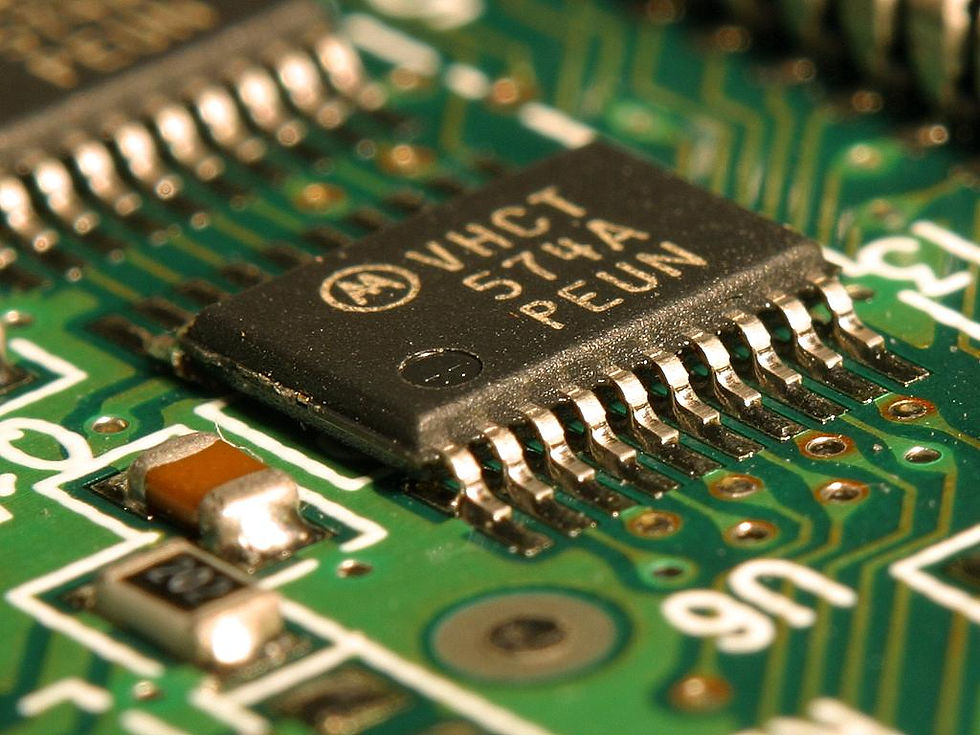Cameras in the Courtroom: A Slippery Slope?
- Tom Chalmers

- Jan 26, 2021
- 4 min read
Updated: Aug 2, 2021
On 16 January 2020, it was announced that television cameras would be allowed to film in the Crown Courts of England and Wales for the first time. The Crown Court (Recording and Broadcasting) Order 2020 will allow judges’ sentencing remarks in the most serious and high-profile cases to be broadcast on television and online. However, trials will not be televised, like in other countries, and only the judge will be filmed.
Previously, the filming and broadcasting of English and Welsh Courts, apart from the Supreme Court and the Court of Appeal from 2013 onwards, was banned under Section 41 of the Criminal Justice Act 1925 and Section 9 of the Contempt of Court Act 1981. However, cameras will now film judges passing down sentences in murder, terrorism, and other high-profile criminal cases. In Scotland, filming has been allowed since 1992, although this does not happen often and the first sentencing was not filmed until 2012.
Allowing cameras in the courtroom, according to Justice Secretary Robert Buckland, “will ensure our courts remain open and transparent and allow people to see justice being delivered”. Lord Chief Justice, Lord Burnett, has also stated this move is intended to make the courts in England and Wales as visible as possible and improve public understanding and education.
The media can play an important part in demystifying the criminal justice system and increasing understanding of sentencing and judges’ reasoning for interpreting the law in certain ways. Thus, the reality of filming in the United Kingdom is likely to be far from American-style televised trials, where proceedings tend to be sensationalised. The government feels that the public needs to witness justice being delivered and, by allowing cameras in court, the judicial system can be seen as more accessible.
Nevertheless, there are a number of potential problems that could arise from the decision to allow cameras in Crown Courts in England and Wales. One could argue that, while the justice system does need to be accessible and open, this does not mean that court cases need to be filmed. Certainly, extra precautions must be made to safeguard the whole judicial process, including witnesses and victims, in light of increasing media attention. The Criminal Bar Association chairwoman, Caroline Goodwin, has raised this issue, stating that despite this shift towards filming courts, “nothing must compromise the interests of justice, the primacy of a fair trial, and respecting the interests of vulnerable witnesses, witnesses generally, and defendants”. Buckland has denied that this move is a “blind stumble” into potentially more problematic issues surrounding the filming of courtrooms.
However, this move does increase the possibilities for media companies to be held in contempt of court, despite the 10-second broadcasting delay that ministers and justices hope will prevent this issue. UK law on contempt of court is partially codified by the Contempt of Court Act 1981, under which Section 1 and the “strict liability rule” make it a criminal act to publish anything that creates a real risk of serious impairment or prejudice in legal proceedings. Allowing cameras in courtrooms for sentencing could potentially lead to issues of contempt. The avenues this opens up for televised trials in the future is an issue as this creates greater scope for media publications which can impede the course of justice.
On top of this, the Bar Council has expressed worry that showing only part of the trial could provoke unjustified criticism of judges from “armchair experts”, and that watching the sentencing could degenerate into a “spectator sport”, as people are not given the full picture from just sentencing remarks. There is a worry that the public may not fully appreciate why a particular sentence has been given without seeing the evidence presented, which could lead to unwarranted attacks on judges. This again raises the possibility of a future with fully televised trials in the UK.
Although there have been assurances that trials in England and Wales, and potentially throughout the UK, will not be televised, this 2020 Order does bring in the possibility of more cameras in the courtroom and fully televised trials. There is concern that televised trials can seriously impact justice and the legal proceedings of the court. Televised trials, seen in America with the very public trials of Orenthal James Simpson and Ted Bundy, can lead to sensationalism and the prejudicing of public sympathies, and could potentially affect behaviour of participants.
Some American research has argued that the presence of cameras has no negative impact on trial proceedings but a large swathe of issues persists. There have been instances where the media has been accused of conducting the trial and passing a “verdict” before the court has a chance. Media prejudice and one-sidedness can also lead to the defendant being presumed a criminal, rather than assumed innocent, which affects the judicial processes as jurors may feel that they need to reach a verdict consistent with public opinion. The argument that cameras in the courtroom provide transparency is also slightly skewed; the media present their own version of proceedings, altered by their interpretation, and so watching trials does not necessarily mean that the process becomes transparent, and this can call the credibility of the judicial system into question.
Therefore, cameras in the courtroom is a widely debated topic due to the potential impact, both positive and negative, it can have on court cases. Although, as the government and justices argue, cameras can educate the public by making the judicial process transparent, cameras are the antidote to a media circus. Allowing cameras in the courtrooms of England and Wales to film sentencing remarks can be beneficial to the UK’s justice system but there is a risk that the UK could follow America’s lead into fully televised trials. Despite warnings that this will not happen, the question still remains: is justice served by the televising of trials?



